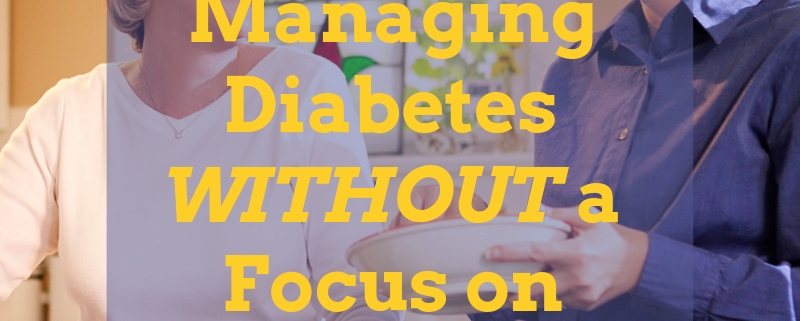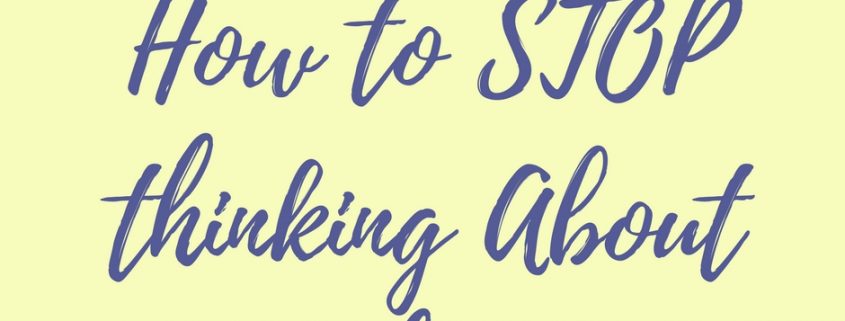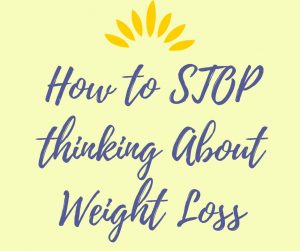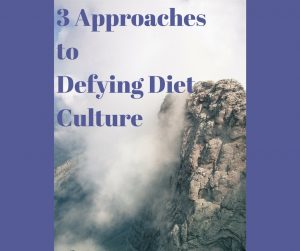3 Steps to Managing Diabetes WITHOUT a Focus on Weight Loss
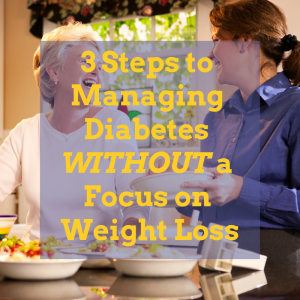 Sue walked into my office with tears in her eyes. She sat down and burst out crying. I gave her a minute, then asked her what was wrong.
Sue walked into my office with tears in her eyes. She sat down and burst out crying. I gave her a minute, then asked her what was wrong.
“I have diabetes!”
She then burst into tears, again.
I walked over to her, put my hands around her shoulders and gave her a gentle hug. This was what she was fearing for a long time. She knew she had pre-diabetes for 5 years, but she just didn’t believe she would ever develop diabetes. She never had any symptoms, so the pre-diabetes diagnosis just never seemed real.
Sue’s doctor “warned” her time and time again that if she doesn’t lose weight, her pre-diabetes will become full blown diabetes. And that it had. However, it’s not as if Sue didn’t try to lose weight. She did, MANY times. And you know what? Sometimes she “succeeded” in losing weight, but the problem is she gained that weight back plus more, ALWAYS.
So, when Sue’s doctor gave her the news that she has diabetes, she felt beaten. He once again prescribed “weight loss”. She sat in my office and said “there has to be another way to manage my diabetes besides weight loss. Like there must be some other things I can do to help myself, because diets just have never worked.”
Bright woman! Yes, there are plenty of things to do to manage your diabetes without pursuing weight loss. It’s unfortunate that the majority of doctors go right for the jugular >> “you’re fat and have to lose weight”.
This happens for other medical diagnoses as well. High blood pressure, heart disease and high cholesterol, to name a few. Docs go right to the scale!
So how do you manage diabetes, or any of the medical conditions I mentioned above, without focusing on dieting and losing weight?
By using a weight-neutral approach to treatment.
Weight-Neutral Interventions
Weight-neutral interventions are based on the fundamental idea that a person’s health status or risk cannot be assumed based solely on a number on a scale. There are many factors that go into a person’s body weight including genetic, metabolic, physiological, cultural, social and behavioral factors.
Weight-neutral treatment programs focus on habit and lifestyle behaviors, rather than on weight, BMI and the pursuit of weight loss.
Getting back to Sue, I started working with her to help her learn about her diabetes, what is going on in her body and how adopting new habits and behaviors can help avoid diabetes complications now and later in life.
3 Steps to Better Blood Glucose Control without Dieting
- Start testing your blood glucose daily. Ideally, you will test upon awakening (fasting blood glucose), and 2 hours after a meal (for type 2 diabetes).
- Write down what you eat for each meal and start to look for trends. Meaning, are your blood sugars always high before dinner? Do you tend to have low blood sugar readings mid-morning? This is data that you will use to make changes to your diabetes meal plan.
- Find a doctor who practices from a HAES (Health at Every Size) approach. Advocate for yourself and ask for the treatment they would give to a person in a smaller body.
For more information on how you can manage your diabetes without dieting, click HERE!
Whether you have diabetes or another medical condition such as high cholesterol, pursuing weight loss is NOT the best treatment prescription. I know this is different than you’ve been told for years, but where has this led you? Let me know if you want to chat about it. Click HERE to get in touch.

